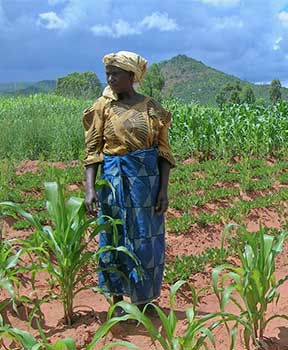Gender
Legumes serve many functions in agriculture value chains and in the lives and livelihoods of women in Sub-Saharan Africa, but research demonstrates that opportunities are constrained by lack of access to resources and education, as well as other factors. While women’s roles in production, processing, and sale of legume products has been proven significant, the limited investment to date in their productivity means that the marginal rate of return on any such effective investment becomes quite strategic.

To address this critical issue, the Legume Systems Innovation Lab will integrate gender-informed analyses within research project’s design and implementation, building on past successes to contribute to knowledge, technology, and development approaches that advance gender equality and women’s empowerment. The resulting approach addresses key USAID directives and Feed the Future guidance.
Through the RRT Gender Advisor, the legume lab will apply the FTF Global Food Security Strategy Technical Guidance: Advancing Gender Equality and Women’s Empowerment in all projects. Gender focused research and capacity building activities will enhance gender equitable participation and facilitate innovation results with income growth and greater resilience to shocks for both women and men.
Research shows that women farmers often do not have access to land and inputs, training on new technologies, and markets for sale of products. In the value chain, limitations exist for women as traders, as formal sector processors, and as researchers. Gender specialists will work with project leads to develop their impact pathways with a gender-based lens, and characterize the causal pathways linking domains of empowerment and engagement to outcomes of improved economic status, nutrition and health, and agricultural productivity, specifically within legume systems.
For example, MSU researchers in W. Africa showed that technology training based on ICT tools incorporates specific needs of low literate women farmers, using video animations to enhance learning. In Guatemala, combining agricultural training with nutrition training enabled women to gain access to new production technologies.
Quick Links
Resources on Gender & Agricultural Research
Assessing how Agricultural Technologies can change Gender Dynamics and Food Security Outcomes
Women’s Empowerment in Agriculture Index
Gender in Agriculture: Closing the Knowledge Gap
WB Sourcebook on Gender in Agriculture
USAID Policy & Regulations on Gender
USAID (2012) USAID Gender Equality and Female Empowerment Policy



